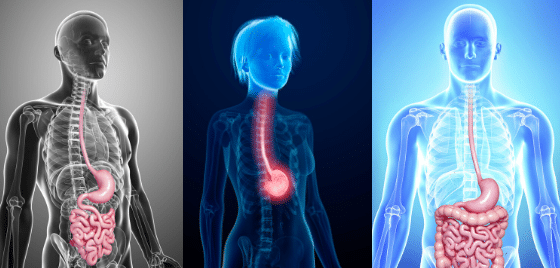
Dysphagia

Summary
If you have a swallowing disorder, you may have difficulty or pain when swallowing. Some people cannot swallow at all. Others may have trouble swallowing liquids, foods, or saliva. This makes it hard to eat. Often, it can be difficult to take in enough calories and fluids to nourish your body.
Anyone can have a swallowing disorder, but it is more common in older adults. It often happens because of other conditions, including:
- Nervous system disorders, such as Parkinson’s disease and cerebral palsy
- Problems with your esophagus, including GERD (gastroesophageal reflux disease)
- Stroke
- Head or spinal cord injury
- Cancer of the head, neck, or esophagus
Medicines can help some people, while others may need surgery. Swallowing treatment with a speech-language pathologist can help. You may find it helpful to change your diet or hold your head or neck in a certain way when you eat. In very serious cases, people may need feeding tubes.
NIH: National Institute on Deafness and Other Communication Disorders
Source: MedlinePlus, National Library of Medicine.
Information pulled from the Swallowing Disorders page.
MedlinePlus brings together authoritative health information from the National Library of Medicine (NLM), the National Institutes of Health (NIH), and other government agencies and health-related organizations.
Dysphagia
National Institute on Deafness and Other Communication Disorders
Dysphagia (Difficulty Swallowing)
Mayo Foundation for Medical Education and Research
Swallowing Disorders
National Institute of Neurological Disorders and Stroke
Swallowing Trouble
American Academy of Otolaryngology--Head and Neck Surgery
Barium Swallow
National Library of Medicine
Dysphagia Tests
National Library of Medicine
Tailored Barium Swallow Study
National Jewish Health
Understanding Esophageal Manometry
American Society for Gastrointestinal Endoscopy
Upper GI Endoscopy
National Institute of Diabetes and Digestive and Kidney Diseases
Listen to our
latest Podcast!




